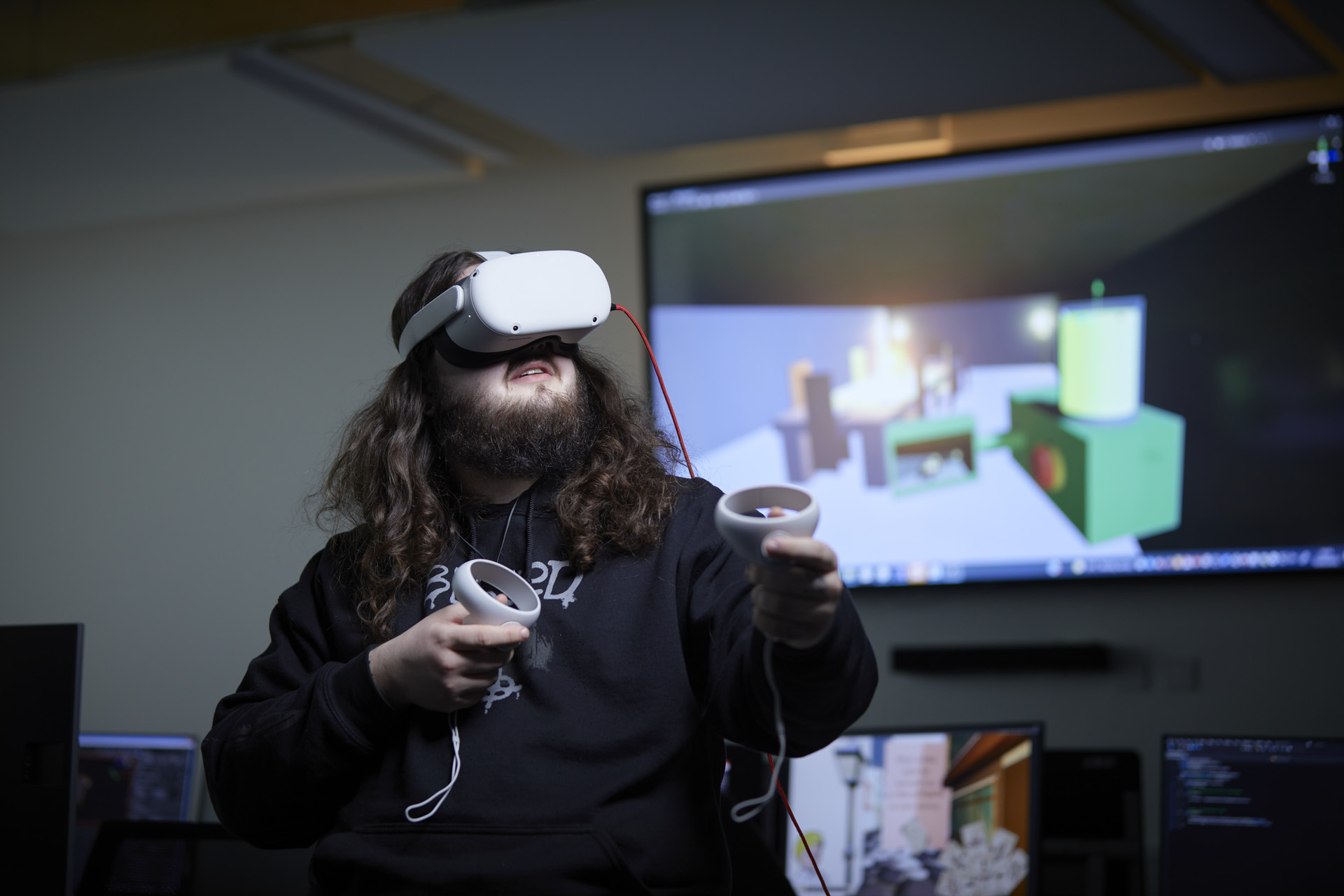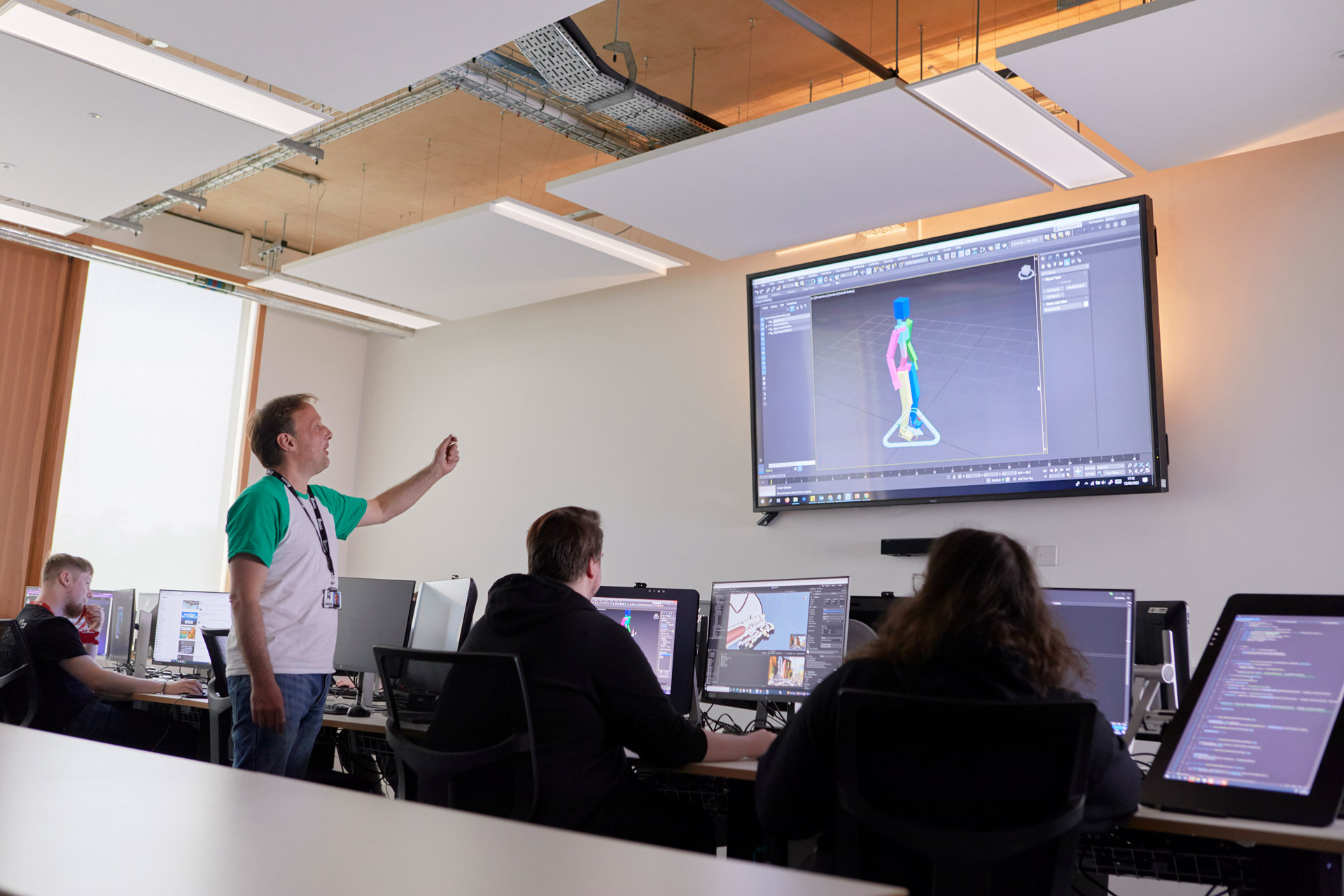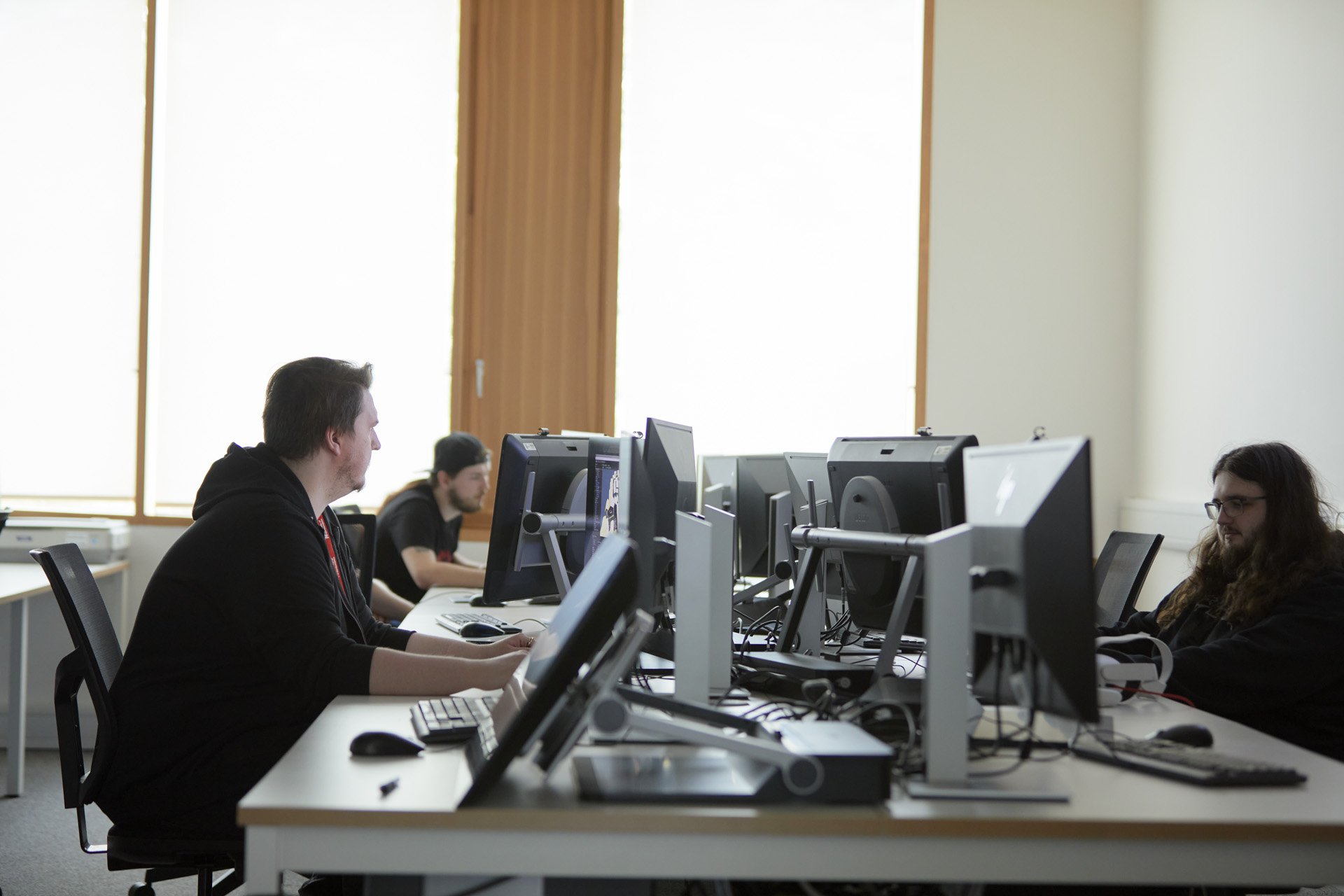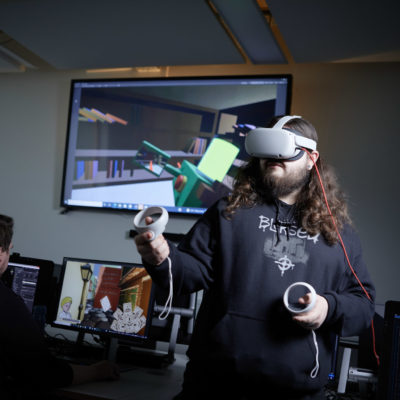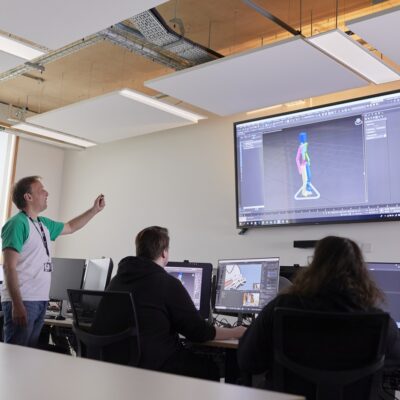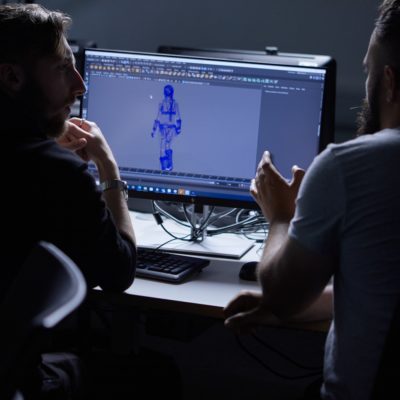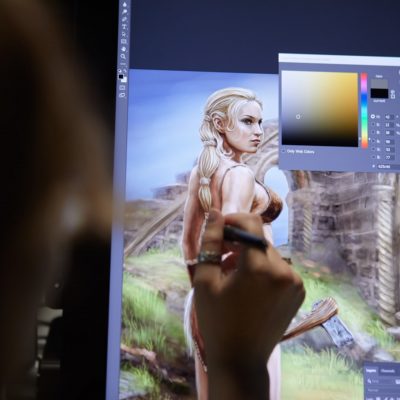
Games Design (Top-Up) BA (Hons)
Key Facts
-
UCAS Code
I621
-
Duration
Full Time: 1 year
-
Full Time: £9,535
-
Full Time: £17,000
Updated 30/10/2025
Updated 30/10/2025
Get in touch
UK STUDENTS ENQUIRIES
study@northampton.ac.uk
0300 303 2772
INTERNATIONAL STUDENTS ENQUIRIES
Overview
Games Design Top-Up BA (Hons) is structured to prepare students to become Game Designers with practical application taking precedence over theoretical work. You will be expected to already have a good working knowledge of Game Engines, Art packages and design theory.
You will join current third year Games Design BA (Hons) students to work on a number of portfolio-based projects and a substantive personal project. You will be able to share your experiences with current Game Design students and collaborate on team projects.
Highlights
- Up-to-date workstation hardware and software in dedicated laboratories, including Wacom Cintiqs and Wacom Intuos
- Dedicated Games Labs and Out of Hours Access Labs
- Guest lectures from industry specialists, previous talks include Rare, Splash Damage, Codemasters, Ubisoft, Lockwood Publishing, Sony and FreeStyle Games
- Yearly group projects, which allow for a real-life games development experience
- Industry experienced tutors
Entry Requirements
Applicants on this Game and Design Top Up course are expected to have completed a HND, DipHE or FdA in traditional art and design, computing, graphics or a related subject area.
All selected applicants will be invited for a portfolio review and discussion. International students may submit their portfolio electronically.
For more information on how to make an application, please visit our How to Apply page.
If you are an International student and would like information on making an application, please see our How to Apply page.
All International and EU students applying for a course with us must meet the following minimum English language requirements:
- IELTS 6.0 (or equivalent) with a minimum of 5.5 in all bands for study at undergraduate level
For information regarding English language requirements at the University, please see our IELTS page
What You'll Learn
We will give you creative skills, technical software skills and industry knowledge, which are all required by leading games developers. You will produce a personal portfolio of your work to reflect industry and professional practice needs, informed by historical and contemporary references, cultural and social contexts.
You will focus on the game design sides of the Games Art industry, but you will be exposed to the whole life cycle of game production from the initial ideas process to final release stage. You will work with programmers from the Games Programming BA (Hons) and artists from the Games Art BA (Hons) so that you understand games development for specific markets in 2D and 3D formats.
The objective of the module is to encourage students to explore the potential of innovative or unconventional technology to construct genuinely new, interactive experiences.
Please note the modules shown here relate to the academic year 25/26. The modules relating to the academic year 26/27 will be available from June 2026.
Whatever your ambitions, we’re here to help you to achieve them. We’ll support you to identify the skills you’re learning during your Game and Design course, find your strengths and secure practical experience so that when it comes to applying for jobs or further study you’ll feel confident in standing out from the crowd. We’ve created the Northampton Employment Promise because we are so confident that if you focus on your studies and complete one of our awards you’ll be highly employable by the time you graduate. Putting you in a great position to secure employment or continue your studies.
To check out the full list of perks, visit our Student Perks page.
How will I learn?
We aim to make learning an engaging and enjoyable experience from our extensive online resources and face to face teaching on this Game Design University Top Up. We will enrich your experiences of Games Design principles, help you to further develop analytical skills, and encourage you to evaluate and recommend solutions required to create engaging gaming experiences.
Teaching and learning occurs through a variety of methods, with practical’s, workshops and learning how to use new techniques and software. Learners will have around 12 hours contact time per week, with the expectation of matching this with their own time. Sessions can be longer or shortened depending on the activity e.g. attending industry events.
All of the module tutors use our virtual learning environment (NILE) to provide additional resources to facilitate your independent learning.
How will I be assessed?
Assessment methods include writing specific reports, blogs, articles, giving presentations, and submission of portfolios. All modules are assessed through 100% coursework.
Fees and Funding
2025/26 Tuition Fees
- UK – Full Time: £9,535
- International – Full Time: £17,000
Fees quoted relate to study in the Academic Year 2025/26 only and may be subject to inflationary increases in future years. UON will adjust UK fees annually in line with Government Policy.
EGX convention: £20 (annually)
For information on the scholarships available to you, please see our scholarships page.
For more information about possible funding options, please visit our Fees and Funding pages.
Fees quoted relate to study in the Academic Year 23/24 only and may be subject to inflationary increases in future years.
- UK – Full Time: £9,250
- International – Full Time: £16,500
